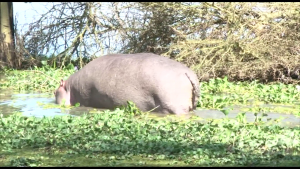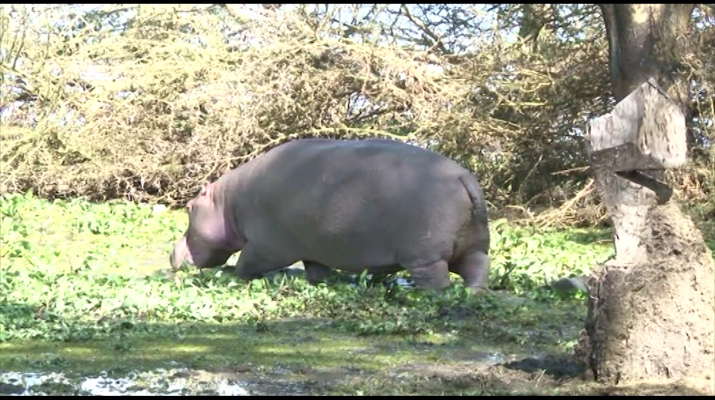For tens of ‘foot-fishermen’ in Lake Naivasha, the rising number of hippos and not the recently introduced Kenya Coast Guards Service (KCSG) poses the biggest risk to them. For the group that is involved in illegal fishing, unlike the guards whom they can reason with, the hippos have turned to be the lake’s newest killers and source of disability. In the last two years, over twenty people have been killed by the hippos and tens of others maimed with 2020 being the worst year due to a rise in water levels that flooded the animals pasture. The fisher-folk in the lake tell harrowing stories as the ruthless animals literally drag their victims in the deep water inflicting deep cuts before leaving to bleed to death.
Early in the week, the latest victim James Maina Gicheru was attacked near Kamuta farm by a lone hippo that crushed him to death as he fled from the coast guards. He is yet to be buried. According to another victim John Kamau from Kasarani estate in North Lake, he escaped death narrowly in January 2019 but was left on crutches. “I was working on the shores of the lake when the hippo out of nowhere attacked, crushing my legs and hands and I was saved by nearby fishermen who had a boat,” he said. Kimani said that efforts to get compensation from KWS had been fruitless adding that he had undergone untold suffering as he sought treatment. “The government has refused to assist all the victims of the hippo attack who are many and this has led to more suffering for us and our families,” he said.
This was echoed by another victim Samson Okoilel who lost one of his knee-caps and buttock to the deadly attack in North Lake. He said that despite getting all the required documentation, KWS had declined to compensate him forcing him to rely on friends and relatives for support. “I was in hospital for four months and later referred for specialized treatment but I cannot afford this and I have been reduced to a beggar yet I was fit and supporting my family,” he said. A trader at Karagita landing beach John Mwangi attributed the rising cases to closure of wildlife corridors and riparian land pushing the animals into human settlement. “We are worried by the rising cases of hippo attacks around the lake and this can only be resolved by opening up the riparian land,” he said.
This was echoed by a tour operator John Mwangi who attributed the rise in the number of foot-fishermen to job losses due to Covid-19 pandemic. “Many of the youths involved in this trade have been pushed into the lake by unemployment and some are killed by the hippos as they try to flee from the coast guards,” he said. But speaking on phone, KWS assistant director in charge of South Rift Dickson Ritan noted that the attack cases had dropped this year compared to last year. He noted that when the lake levels rose in 2020, the grazing land for the animals was reduced, pushing them into nearby estates and hence the attacks. “We have conducted sensitization meetings among the fishermen and those who are most attacked are the illegal fishermen commonly known as foot-fishermen,” he said.

